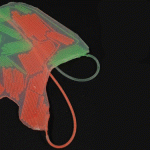Virtual reality could help Parkinson’s patients.
Described for the first time in the paper “Essay on the Shaking Palsy,” written by James Parkinson in 1817, this progressive neurological condition pretty much remains a mystery. Researchers believe that environmental toxins, oxidative stress, genetic factors or a combination of the above might be behind this neurological condition that affects more than six million individuals worldwide.
Advanced Parkinson’s patients might develop Freezing of Gait (FOG), a condition linked to balance impairment and falls. In the research review, “Falls and Freezing of Gait in Parkinson’s Disease: A Review of Two Interconnected, Episodic Phenomena,” falls and FOG are described as two “‘episodic’ phenomena”¦often incapacitating for affected patients, as the associated physical and psychosocial consequences have a great impact on the patients’ quality of life, and survival is diminished.” But new research conducted at the Brain and Mind Research Institute at the University of Sydney might give new hope to Parkinson’s patients.
In conjunction with Southern Radiology, researchers at the Brain and Mind Research Institute scanned the brains of Parkinson’s patients with a new magnetic resonance (MR) scanner. The results helped them develop a virtual reality (VR) environment with corridors and doorways that can be navigated using foot pedals. “Our preliminary results show that patients with FOG have a delay in their stepping pattern when passing through doorways in the VR. We didn’t see this in patients without FOG or in healthy control subjects,” said Dr Simon Lewis, Director of the BMRI PD Research Clinic, in the press release.
“What is truly exciting about these findings is their potential application to therapy. Currently FOG does not respond well to available treatments. However, it is possible that exercising in VR may offer a potential way of improving symptoms without need for medications or surgery,” said Lewis. Parkinson’s disease is the second most common progressive neurological condition (the first one is dementia) and it is estimated that one in 100 Australians will develop it.
Sources: The University of Sydney and Parkinson’s Australia







